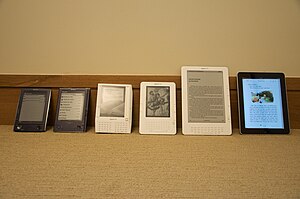The Apple vs. Department of Justice anti-trust, book pricing case came to an end this past week. It offered a rare and important glimpse of the private nether regions of both the publishing world and the new corporate media industry controlled in large part by Apple and Amazon.
I co-authored an op-ed piece on this case at Talking Writing magazine with TW’s editor in chief, Martha Nichols. It’s called “Thank You, Apple, for Going to Court Over E-Books.” Unlike most of the pundits in the publishing and high-tech worlds, Martha and I took the long-term perspective of authors — not corporate publishers and consumers. Apple and the big publishers were trying to change the business model of retail book sales. Rather than allow retailers control of pricing, Apple and the publishers wanted to cut a deal where retailers got 30% of the revenues and the publisher got 70% — with publishers setting the retail price.
This is important because every indie author is also a publisher. For the past century authors have received royalties from publishers that represent, typically, about 10-15% of the retail price of books. Except for the Stephen Kings and Jackie Collins’s of the writing world, most authors have made peanuts from the sale of their books (I won’t get into the weeds on this, but I assure you, the traditional publishing economy is chock full of really fucked up “rules” that don’t help authors at all).
Thus, arguing for a model that gives publishers the right to price their own books means more power for any independent publisher to determine their own economic reality.
Mark my words here: the book world you see today is not the book world of tomorrow. We are about a third of the way through technology change in this sector of media. It’s very likely that only about 50% of you reading this post right now regularly read books with a digital reader. E-Books represent 25-30% of book sales right now. You may not believe it, but over the next 5 years that number should double. By 2025 it’s likely that 95% of the novels, biographies, memoirs, histories, text books, etc. people read will be electronic. The book marketplace is wide open to change right now.
Am I whistling dixie out of some under-used orifice here? I don’t think so. The music and video industries have pretty much already gone through this change. And those of us who may be hardcore holdouts, well, we’re dying out…literally.
More importantly, though, small press books are now being released as five and six dollar e-books all over the place. The market economy of the publishing industry is NOT only about the big five publishers. There are thousands of small presses and millions (millions!) of independent authors out there. James Patterson’s newest crime fiction novel can be purchased as an e-book at the iBooks Store for $11.99. If you just go to Smashwords (the king of indie e-book stores) dozens of high-quality mysteries can be found for half that price and less.

In fact, I’ll take it one step further, you can now find my own mystery (a twisted, psychedelic tale about music, murder, and deep conspiracy) for whatever price you want to pay at Smashwords. It’s also available for $4.00 at several new, somewhat experimental sites I’ve found that just charge me a small transaction fee.
As an independent author/publisher, I get 70-95% of the revenues from my books. Patterson is lucky to get 25%. Mine obviously cost far less than his. Better put, his cost at least three times as much as mine right now.
If we let the market play out over the next five years, do you really think the James Patterson’s of the industry are going to be selling books through big publishers when they can do it all themselves and actually make more money by selling books for half the cost?
And think about this: an iPad costs about $500 these days. As Apple competes with all the other tablet makers, that price will drop considerably (I paid over $5,000 for my Mac II in 1988). And if Amazon has any sense, they will shortly be offering a bundled subscription account for their e-book club that includes a free Kindle. Trust me, they’re thinking this through right now. If they aren’t, they won’t be in the e-reader business much longer.
So this court case between Apple and DOJ is quite important. U.S. District Judge Denise Cote is expected to hand down her decision in a few weeks.Whatever she decides, though, won’t be the final word. It will just be the next salvo in what is going to be a 5-10 year industry revolution. What’s most important to take away in all of this is that corporate interests have dictated the commerce of books and magazines forEVER. Readers and writers are the core of this sector of the economy, but we’ve had no real control over the terms and conditions — EVER.
That’s going to change. How it changes is really up to each of us — as readers and writers. A lot of folks are sticking their heads in the sand, or declaring that they “only read real books; digital text is impure.” That’s just dumb. There’s plenty of paperbound books out there. There will be for the next two or three centuries (have you looked at Amazon’s used book offerings?). But it makes no sense to be a digital reading prude. You save money. It’s better for the environment. It’s more convenient. You read with the power of the Internet always at your beck and call. You carry a library with you everywhere. And if you use an iPad or some other tablet, you’re also carrying a music collection and a video library on top of all the books you want to read. If you truly need to read a paperbound book, you can still do it, but e-books are just, well, better. They really are. You just need to get your eyes wet and find the time to open your mind.

Check out our TW op-ed piece: “Thank You, Apple, for Going to Court Over E-Books”
Stay tuned for more articles along these lines by subscribing to this blog. I will be running pieces on e-books in the academic world; predatory pricing; how small presses and indie bookstores are affected by e-books; recommended software innovations for e-readers; new e-book retailers; and my search for the next David Foster Wallace and Toni Morrison in the virtual world.
Read my “Talking Indies” column in every issue of Talking Writing. See “How Much Should E-Books Cost?” in the Winter 2013 edition. Subscribe to TW to stay caught up on everything real in the writing world.
Related articles






